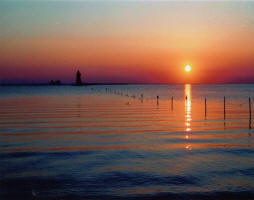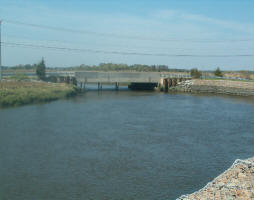 Jordan: Declining rainfall, population growth spur search for water
Jordan: Declining rainfall, population growth spur search for water
Declining
rainfall levels in water scarce and debt-ridden Jordan, the population
of which is growing rapidly, have given further urgency to the search
for alternative water sources.
Jordan captures and
utilizes 90 percent of its rainfall, but climate change has led to
decreasing levels of precipitation, particularly over the past two
years, environmentalists say.
In 2008-2009, eastern areas of the kingdom saw sharp declines in
rainfall, said an official at the Jordan Meteorological Department who
requested anonymity because he was not authorized to speak to the press.
"There is some evidence of climate change affecting levels of rain, but
it is very difficult to say for sure as we need a longer period of time
to compare rates of rainfall," the official told IRIN.
There are no major rivers in the country apart from the River Jordan,
which has been steadily depleted over recent decades, leaving just a
stream separating Jordan from the West Bank. As the kingdom has no
lakes or renewable sources of water, the country relies on rain and
non-renewable underground aquifers for two-thirds of its water.
One third of its water needs are pumped to it by Israel as part of the
1994 Wadi Araba Treaty (also known as the Israel-Jordan Treaty of
Peace). The water is pumped to Zai plant before being treated and sent
to Amman and nearby cities.
But after a scandal in the late 1990s when the government of former
Prime Minister Fayes Tarawneh was sacked amid rising public fury over
its mishandling of a water contamination scandal which originated from
the Israeli supply, the authorities were forced to look into
alternative and sustainable water resources.
Nedal Hadadin, a water scientist at Jordan's government-run University
of Balqa, said the significant drop in rainfall levels was a result of
climate change caused by humans. It is "triggered by a depleted ozone
layer", he said.
Hadadin fears the reduction in rainfall will only get worse as a more
unpredictable climate continues to change rain patterns.
One
alternative proposed for years has been to pump water out of the Disi
Aquifer in the south. Experts say the water basin has enough fresh
water to satisfy Jordan for more than 100 years.
However, political and financial obstacles have stalled the idea until recently.
Saudi Arabia and Israel, which share the aquifer with Jordan, were
concerned that taking water from it would reduce their water reserves.
But the project was given the go-ahead in 2008 after Jordan managed to
persuade its neighbours of the importance of the initiative to the
kingdom's water security. An agreement between the government and
Turkish company Gama was reached to launch the Disi project at a cost
of US$800 million, paid for through loans from various organizations,
including the World Bank.
In August 2009, Gama started work on the project in the Wadi Rum area of southern Jordan.
Jordan's minister of water, Raed Abu Saud, said residents of Amman
could receive fresh water from the Disi aquifer by 2012, much earlier
than anticipated.
| Contact information | n/a |
|---|---|
| News type | Inbrief |
| File link |
http://www.irinnews.org/Report.aspx?ReportId=86250 |
| Source of information | Irin News - © IRIN 2009. |
| Subject(s) | HYDRAULICS - HYDROLOGY , NATURAL MEDIUM , POLICY-WATER POLICY AND WATER MANAGEMENT , RISKS AND CLIMATOLOGY , WATER DEMAND |
| Relation | http://www.semide.net/countries/fol749974/country045975 |
| Geographical coverage | Jordan |
| News date | 30/09/2009 |
| Working language(s) | ENGLISH |
 you are not logged in
you are not logged in





